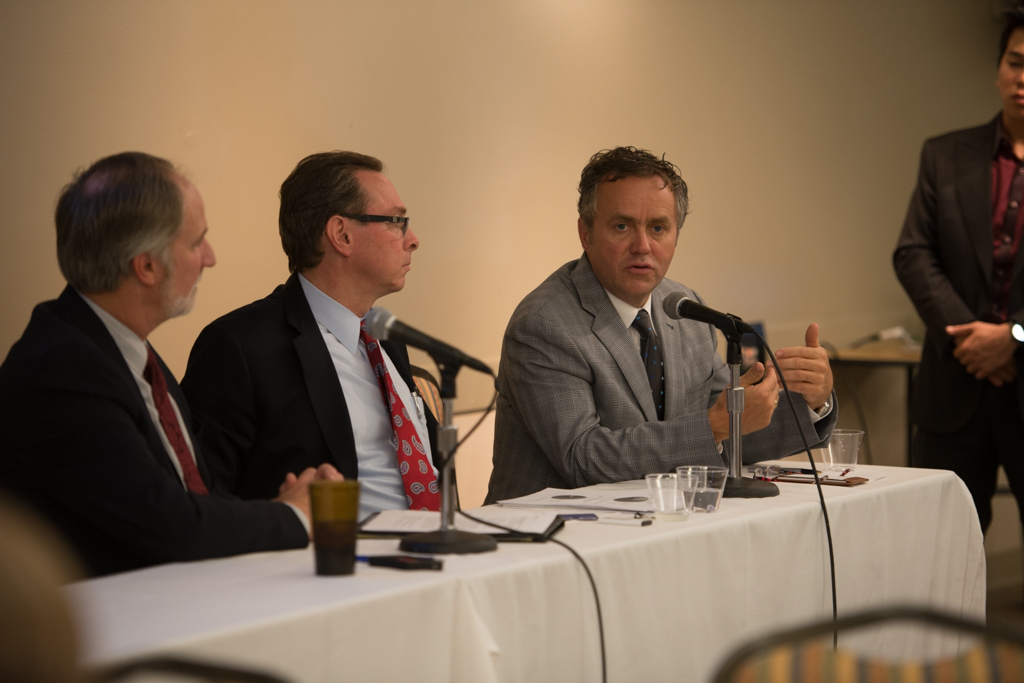
A new tuition payment plan and other financial concerns were discussed over pizza at “Pizza with the Prez” on April 8, an event sponsored by Associated Students and the president’s office.
Although only around 30 students were in attendance, the desired outcome of the event was the student conversations that occurred afterwards, said president Barry Corey.
The open forum focused on issues of affordability and introduced a payment method that allows students to pay their tuition in four payments of 25 percent in an effort towards affordability. Corey opened up the discussion by stating that there is no single way that will instantly solve the issues of affordability.
This issue of affordability is necessary to talk about at length, Corey said.
“If we’re not talking about affordability, I think we’re not talking about one of the most important things that students really struggle with in order to have a Biola education,” Corey said.
Vice president of enrollment management Greg Vaughan and vice president of business and financial affairs Mike Pierce joined Corey in the panel. President’s Administrative Council members vice president of university services Greg Balsano, provost and senior vice president David Nystrom, interim chief communications and marketing officer Brian Miller and vice president for student development and university planning Chris Grace also attended and answered questions.
How the $184 million of university revenue is spent and the reason for tuition increase were also main topics of discussion at the event. University revenue is mostly spent on personnel, scholarships and operating costs, Pierce explained. One of the biggest contributors to a tuition rise is the rising cost of healthcare, Pierce said.
DINNER OVER DONUTS
In previous years, this event has been titled “Donuts with DBC,” but AS felt that dinner would attract people to stay for the entire event, said Evan Tan, AS president. Also in past events, students were able to ask any questions related to Biola, but having a focused discussion topic produces a guided and deeper conversation of the issue, Tan said.
Zane Henderson, a sophomore political science major said as he left the event that the answers he received to his questions satisfied his concerns.
“One of [my questions] was, ‘Why did tuition go up about $1000?’ and ‘why did my aid not go up to match that?’ That was especially confusing when they talked about the university plan and how that was going to make things more affordable, but then it seemed like it was not doing that and the opposite was happening,” Henderson said.
It is important for AS to sponsor these types of administrative discussions, because they allow administrators to have a better understanding of what students need from university leadership and act as a mediator between the two, Tan said.
“AS has that capability that university administrators don’t. They don’t have the capability of reaching that many students and asking those questions, while we do as AS,” Tan said.
ADMINISTRATIVE ACCESSIBILITY
These types of events are important because it gives students the opportunity to interact with their administration, Corey said.
“Administrative accessibility is a hallmark of good leadership,” Corey said.
The best part about these kinds of student conversation events is the opportunity to empathize with student struggles, Corey said.
“I want to feel what students are feeling,” Corey said.







